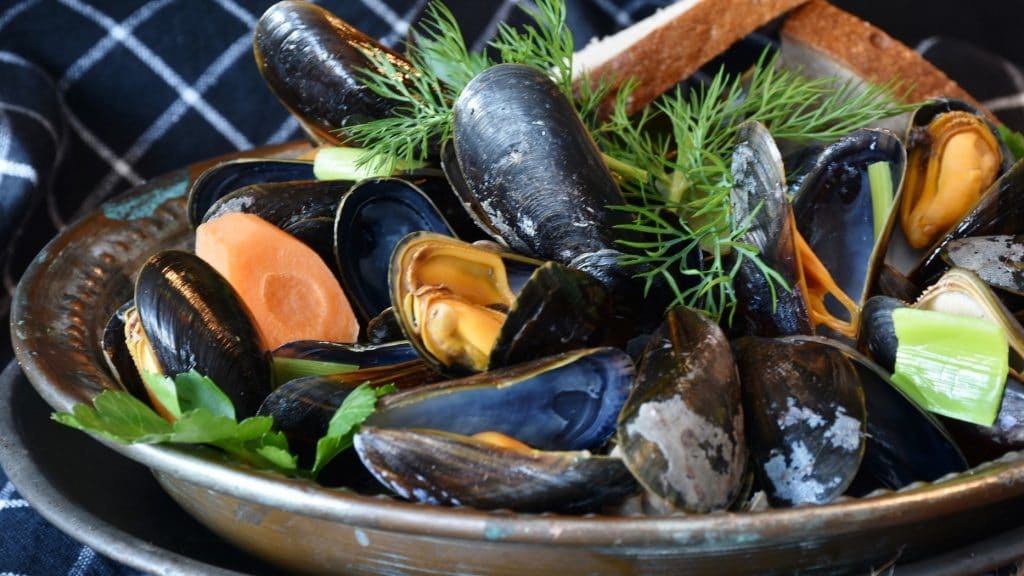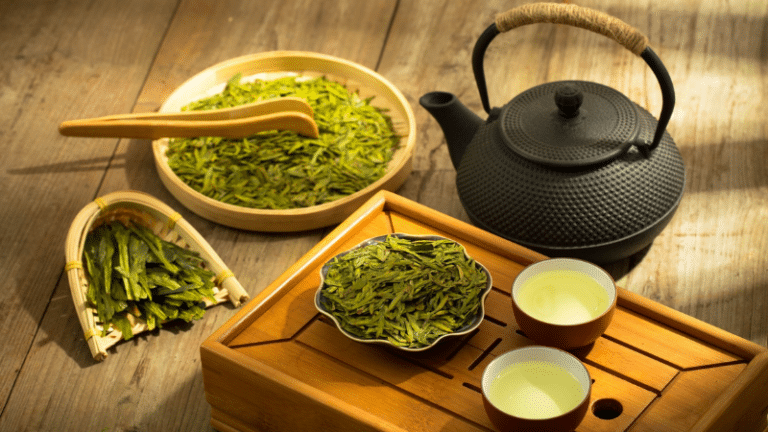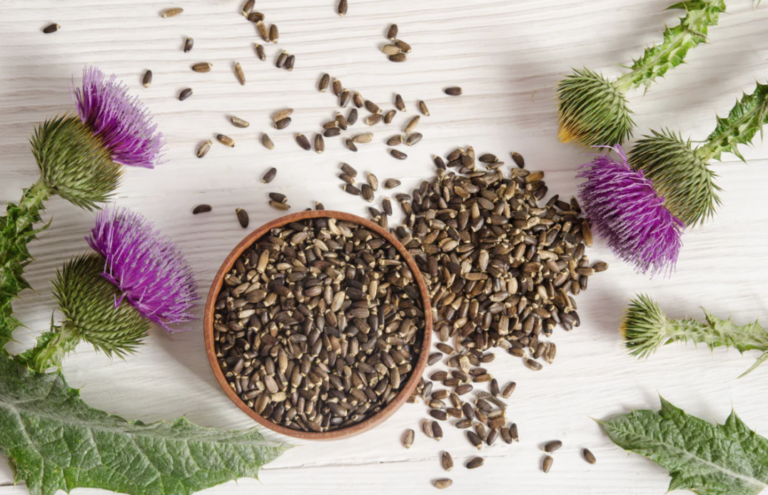23 Vitamin B12 Foods to Feel Positive & Energetic in 2024

Vitamin B12 is responsible for many vital functions in our body. It is one of eight B vitamins, which all play an essential role in creating energy from our food. So for you to feel good and stay healthy, you have to include vitamin B12 foods in your eating plan. Here you can find a list of foods rich in this nutrient that you can easily add to your everyday diet.
What Is Vitamin B12?
Vitamin B12 is water-soluble, meaning that it is dissolved in water and transported through the bloodstream. It’s also known as cobalamin because vitamin B12 forms also contain the mineral cobalt.
Among other things, it contributes to:
- nerve cell health
- the formation of red blood cells
- DNA synthesis
Considering its numerous crucial roles in our body, we need to consume a sufficient amount of food containing this essential vitamin.
Vitamin B12 Benefits
Cobalamin has numerous health benefits — it may prevent cardiovascular disease, improve your memory, and boost your energy. Another one of the B12 vitamin benefits is preventing anemia, a medical condition characterized by a low level of red blood cells.
Other health benefits of vitamin B12 include contributing to the normal development of a fetus’s brain and nervous system. Following that, pregnant women should have an adequate intake of this nutrient. That aside, there are many more benefits of vitamin B12, like lowering the risk of premature birth or miscarriage.
One study from 2016 showed that vitamin B12 might prevent dementia and improve cognitive function. However, additional research is necessary to provide more evidence about the role of the vitamin B12 supplement in enhancing memory and slowing down mental decline.
Now, although more research is needed to support the conclusions about the relationship between vitamin B12 and heart health, this nutrient is known for lowering the levels of homocysteine, decreasing the risk of heart disease.
Cobalamin Foods
Animal products, such as meat, fish, eggs, and dairy products, are generally rich in vitamin B12. On the other hand, foods of plant origin don’t usually contain this nutrient. In other words, there aren’t many vitamin B12 foods vegetarians and vegans can eat unless they go for fortified food products, such as breakfast cereals and nutritional yeast. Below you can find a list of food products high in vitamin B12. Try to include some of them in your eating plan.
Beef
Let’s start our vitamin B12 foods list with a rich source of cobalamin — beef liver. Astoundingly, a 3-ounce serving of cooked liver serves 1,178% of vitamin B12’s DV. Ground beef is also a good choice since three ounces of 85%-lean meat cover 100% of the vitamin’s DV.
Cured Ham
Another vitamin B12 food worth mentioning is cured ham. Namely, three ounces of roasted cured ham cover 10% of cobalamin’s DV. Besides vitamin B12, it contains other B vitamins. For instance, it is an excellent food source of thiamin, riboflavin, and niacin. Cured ham is also a great source of phosphorus and selenium.
Chicken
Chicken is not as rich in this nutrient as beef, but it still belongs to the foods high in cobalamin. In fact, three ounces of roasted breast meat cover 5% of cobalamin’s DV, making chicken one of the good sources of B12. Besides, it is high in other B vitamins. Namely, it is deemed a rich food source of vitamin B6 and niacin. As for its health benefits, chicken helps strengthen the bones, build muscles, and promote heart health.
Turkey
One cannot list foods with cobalamin without mentioning turkey. Namely, a 3-ounce serving of roasted dark turkey meat supplies 58% of the vitamin’s DV, making it an excellent food containing vitamin B12. What’s more, it is rich in phosphorus, sodium, magnesium, iron, choline, niacin, selenium, and potassium.
Clams
Seafood is generally high in cobalamin. Following that, a 3-ounce serving of cooked clams covers 1,401% of this vitamin’s DV. Apart from containing the B12 vitamin, clams are a good food source of vitamin C, riboflavin, and niacin. Moreover, this type of shellfish is rich in iron, selenium, phosphorus, and copper.
Rainbow Trout
Many types of fish supply vitamin B12, and trout is no exception, landing itself a spot on the list of cobalamin foods. Notably, one fillet of wild rainbow trout (cooked with dry heat) can provide you with 150% of vitamin B12’s DV. What’s more, this fish helps reduce bad cholesterol and chronic inflammation.
Sockeye Salmon
Sockeye salmon is another highly nutritious fish rich in numerous vitamins and minerals, and it is an invaluable addition to vitamin B12 foods. For example, three ounces of sockeye salmon cover 80% of the vitamin’s DV. It is also a food high in riboflavin, niacin, and vitamin B6. In addition, sockeye salmon is an excellent source of selenium, phosphorus, and omega-3 fatty acids.
Tuna Fish
Tuna fish is also one of the foods high in vitamin B12. For instance, three ounces of cooked bluefin tuna serve approximately 385% of the vitamin B12’s DV. Furthermore, this type of fish, a great source of omega-3 fatty acids and high-quality protein, is a food rich in niacin, vitamin B6, and selenium.
Haddock
Another vitamin B12 rich food is haddock. In fact, you will get 134% of the vitamin’s DV in one fillet of cooked haddock. In addition, this fish from the northern seas supplies magnesium, niacin, vitamin B6, selenium, and phosphorus, helping build bone strength and regulate heart rate.
Octopus
Octopus meat is another one of vitamin B12 foods. As a matter of fact, three ounces of octopus cooked with moist heat can cover 1,275% of the vitamin’s DV. Besides being food sources of vitamin B12, octopuses are also rich in vitamin B6 and niacin. As for their mineral content, these mollusks are rich in selenium, iron, copper, and phosphorus.
Oysters
Foods rich in vitamin B12 include yet another type of seafood — oysters. Namely, a 3.5-ounce serving of wild eastern oysters covers around 324% of the recommended dietary intake (RDI) of vitamin B12. What’s more, oysters supply us with zinc, riboflavin, selenium, and copper.
Blue Mussels
Blue mussels are B12, cobalamin, foods, too. Notably, you get 850% of the vitamin’s DV in three ounces of cooked blue mussels. They also contain other B vitamins. For instance, they are a rich food source of folate, thiamin, and riboflavin. On top of that, blue mussels are rich in various minerals, such as manganese, selenium, and iron.
Atlantic Herring
An Atlantic herring is another sort of fish that belongs to foods with vitamin B12. If you eat one herring fillet, you will cover 783% of the vitamin’s DV. Furthermore, this fish is an excellent source of riboflavin, niacin, and vitamin B6. Herring is also high in various minerals, such as selenium and phosphorus.
Sardines
What foods contain vitamin B12, cobalamin? One simply cannot respond to the question without mentioning sardines. Believe it or not, one can of Atlantic sardines serves 343% of the vitamin’s DV. They are also a rich food source of vitamin D, riboflavin, and niacin. As for the minerals, sardines contain selenium, phosphorus, calcium, and iron.
Canned Cod
Another food with vitamin B12 is canned cod. Namely, one can of cod gets you approximately 137% of the vitamin’s DV. Moreover, cod is high in choline, iodine, omega-3 fatty acids, selenium, phosphorus, and niacin. That said, make sure you eat it in moderate amounts.
Eggs
Eggs are vitamin B12 foods for vegetarians, specifically lacto-ovo-vegetarians. Those are the vegetarians who eat vegetables, dairy products, and eggs but don’t eat meat. As for the nutritional value of eggs, one large and cooked egg covers 19% of cobalamin’s DV.
Milk
Milk is among the sources of vitamin B12 yet and another option for lacto-ovo-vegetarians. As a matter of fact, from one cup of 1%-fat milk, you will get 39% of the vitamin’s DV. Besides, milk supplies us with vitamin D, riboflavin, calcium, phosphorus, magnesium, and potassium. It is also a food rich in vitamin A.
Fruit Yogurt
Other dairy products, like yogurt, are also good B12 vitamin foods. For instance, a 6-ounce container of fruit yogurt can cover 34% of the vitamin’s DV. In addition to being one of the dietary sources of vitamin B12, yogurt will provide you with riboflavin, calcium, phosphorus, selenium, and other valuable nutrients.
Swiss Cheese
Cheese is another milk product that belongs to vitamin B12 rich foods. Notably, in a 1-ounce slice of Swiss cheese, you will get around 40% of the vitamin’s DV. What’s more, this cheese is good for the bones and contributes to healthy muscles and healthy blood flow.
Fortified Soy Beverage
There are only a few vitamin B12 foods vegans can include in their diet to cover their daily needs of cobalamin. Their choice mostly comes down to fortified foods, such as soy beverages. Namely, a cup of fortified soy beverage covers 44% of the vitamin’s DV. What’s more, soy milk is an excellent source of folate, potassium, choline, and calcium.
Nutritional Yeast
Nutritional yeast is part of vegan foods high in vitamin B12. One serving of this yeast can cover up to 100% of cobalamin’s DV, depending on the brand. Moreover, it usually contains other B vitamins, as well as protein, fiber, and antioxidants.
Fortified Cereals
Breakfast cereals are generally enriched with various B vitamins, including vitamin B12. Once again, depending on the brand, one serving of breakfast cereals can provide you with up to 100% of the vitamin’s DV. What’s more, cereals are an excellent source of many minerals, such as zinc, copper, iron, magnesium, and phosphorus.
Tempeh
This protein-rich soy food belongs to vitamin B12 food sources, too. In fact, one cup of tempeh provides you with about 6% of the vitamin’s DV. Additionally, tempeh improves cholesterol, promotes bone health, protects the heart, lowers blood pressure, reduces inflammation, and improves insulin resistance.
Vitamin B12 Recommended Daily Intake
The recommended dietary allowances (RDA) for all the nutrients have been devised by the Food and Nutrition Board (FNB) at the Institute of Medicine of the National Academies.
Now, the amount of vitamin B12 you should take depends on your age, and it is as follows:
- from birth to 6 months — 0.4 mcg
- from 7 to 12 months — 0.5 mcg
- from 1 to 3 years — 0.9 mcg
- from 4 to 8 years — 1.2 mcg
- from 9 to 13 years — 1.8 mcg
- 14+ years — 2.4 mcg
As this vitamin is crucial for fetal development, pregnant women should increase their vitamin B12 dosage to 2.6 mcg a day. Also, breastfeeding women need more vitamin B12 — 2.8 mcg per day, to be more precise.
Vitamin B12 Deficiency
This nutrient deficiency may cause some neurological changes, including numbness and tingling in the hands and feet.
The vitamin B12 deficiency symptoms include:
- mouth ulcers
- an inflamed tongue
- problems with maintaining balance
- mood changes
- depression
- dementia
Low levels of vitamin B12 can also lead to megaloblastic anemia, characterized by:
- fatigue
- muscle weakness
- shortness of breath
- loss of appetite
- constipation or diarrhea
Cobalamin deficiency can result in permanent nerve damage. Therefore, it’s crucial to diagnose it on time and treat it properly. The treatment options include either high doses of oral vitamin B12 or vitamin B12 injections. As always, make sure to consult your healthcare provider first.
Who Should Consider Taking a B12 Supplement?
Up to a third of older people have problems with the absorption of vitamin B12 due to atrophic gastritis. Also, people with pernicious anemia cannot absorb this vitamin, so they are usually treated with vitamin B12 shots. Following that, these two groups of people are often advised to take supplements to either prevent or treat this deficiency.
Some gastrointestinal disorders, such as celiac disease and Crohn’s disease, may lead to a low concentration of vitamin B12 since they decrease its absorption. In addition, people who have undergone specific gastrointestinal surgical procedures can have inadequate levels of vitamin B12, meaning they could benefit from taking vitamin B12 tablets, too.
Since this vitamin’s sources are primarily foods of animal origin, strict vegetarians and vegans are likely to develop a deficiency in vitamin B12 if they don’t consume sufficient amounts of fortified food products or take dietary supplements. Pregnant and lactating women should be cautious if they follow a strict vegetarian or vegan diet, as their infants may also develop this type of deficiency.
Vitamin B12 Side Effects
According to the Institute of Medicine of the National Academies, vitamin B12 is not toxic even if taken in large amounts. Since there is no evidence that too much vitamin B12 can have adverse effects on our health, this institution didn’t provide tolerable upper intake levels for this nutrient.
However, you should be cautious if you are taking supplements as they may have some side effects. Following that, some of the vitamin B12 tablets’ side effects include:
- headaches
- anxiety
- itchy skin
- nausea
Therefore, when considering taking dietary supplements, consult your doctor first.
Conclusion
Vitamin B12, or cobalamin, is essential because it plays many significant roles in our organism. Besides contributing to energy production, it is crucial to the formation of red blood cells and the synthesis of DNA. A balanced diet of cobalamin foods can usually provide us with a sufficient amount of this vitamin.
However, vegetarians and vegans on a strict diet need to include fortified food products, such as breakfast cereals, in their eating plan. That’s so they don’t develop a deficiency in this vitamin, as there aren’t many vitamin B12 vegetables and fruits.
There are also dietary supplements that may help people who are likely to have inadequate levels of vitamin B12. It’s good to know that cobalamin overdose is virtually impossible. That said, cobalamin injections can have some unpleasant side effects.
FAQs
What are the benefits of taking vitamin B12?
Since vitamin B12 plays several crucial roles in our body, you must ensure an adequate intake of this vitamin.
Being responsible for the production of red blood cells, vitamin B12 can prevent anemia. Also, it is involved in the process of creating energy from the food we consume. Furthermore, it contributes to the synthesis of DNA and maintains our brain and nervous system healthy. Finally, by decreasing homocysteine, cobalamin prevents heart disease.
What are the symptoms of B12 deficiency?
Overall, this deficiency is relatively common. That said, some of the symptoms of vitamin B12 deficiency include weakness, fatigue, dizziness, and loss of breath. Moreover, low levels of vitamin B12 can lead to anemia and nerve damage, which is characterized by tingling in the hands and feet.
How much B12 should I take daily?
The recommended daily intake of vitamin B12 varies by age. Healthy adults need a vitamin B12 dosage of 2.4 mcg. Be that as it may, pregnant women have to increase their daily vitamin B12 intake to 2.6 mcg while lactating women need even more cobalamin — 2.8 mcg per day.
Why do I need vitamin B12 injections?
B12 injections are used to prevent or treat this vitamin deficiency. Vegetarians and vegans usually have inadequate levels of this vitamin since vitamin B12 is naturally found in animal products. In other words, they might need to talk about a proper vitamin B12 injection dosage with their healthcare provider. Also, some people have a problem with the absorption of cobalamin due to some medical conditions.
How quickly does a B12 shot work?
These injections are the most effective way of absorbing vitamin B12, and one of the vitamin B12 shot benefits is that they work pretty quickly. In other words, in 48–72 hours, your body will start making new red blood cells. In case of mild deficiency, people have to wait for 2–3 doses of vitamin B12 injection over a few weeks to feel the peak impact. Note that these shots have to be administered by a licensed medical professional.
Which foods are high in B12?
Vitamin B12 or cobalamin is naturally present in various foods of animal origin. As a matter of fact, different types of meat, fish, seafood, eggs, milk, and dairy products are excellent cobalamin sources. In addition, many foods are enriched with synthetically made vitamin B12.
How to get vitamin B12 naturally?
The natural way of getting vitamin B12 is through your diet. Therefore, to increase the B12 vitamin dosage, make sure you eat more foods that contain it: beef liver, chicken, fish, shellfish, fortified breakfast cereal, low-fat cheese, yogurt, milk, and eggs.
Can you get B12 from plants?
Generally, plants don’t contain vitamin B12. However, this nutrient is usually added to cereals, soy products, nutritional yeast, and other food products. Therefore, if you follow a strict vegetarian or vegan diet, you need to include these vitamin B12 foods to prevent this vitamin deficiency.






